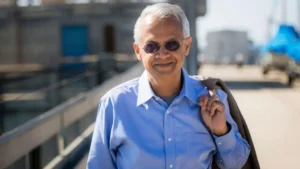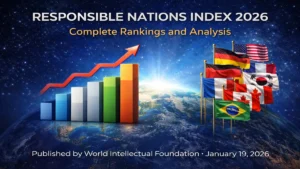In a major commercial development, Apollo Tyres has secured the role of lead sponsor for the Indian cricket team after winning a highly competitive BCCI bidding process. The ₹579 crore deal, announced on 16 September 2025, marks a new chapter in Team India’s branding journey, covering 121 bilateral matches and 21 ICC fixtures over the next three years.
The agreement follows the exit of Dream11, whose operations were impacted by regulatory restrictions under India’s new Online Gaming Act.
Intense Bidding and Record-Breaking Numbers
The Gurgaon-based tyre manufacturer outbid major players,
- Canva: ₹544 crore
- JK Cements: ₹477 crore
While Birla Optus Paints expressed interest, it opted out before the final bidding. Apollo’s aggressive ₹579 crore bid worked out to an average of ₹4.77 crore per match, significantly above the BCCI’s base price of ₹3.5 crore for bilateral games and ₹1.5 crore for ICC matches.
This makes the deal one of the most valuable sponsorship contracts in Indian cricket history.
Why a New Sponsor Was Needed
- Dream11, the previous lead sponsor, had to withdraw due to legal limitations introduced by the Promotion and Regulation of Online Gaming Act. To avoid future complications, the BCCI barred companies linked to betting, online gaming, crypto, or tobacco from participating in the new tender.
- This opened the door for mainstream brands like Apollo Tyres, known for its global presence in over 100 countries, to step into India’s most visible sports branding opportunity.
What Apollo Gains from This Association
Apollo Tyres will now enjoy top-tier visibility on Team India’s jerseys during,
- Bilateral series (home and away)
- High-profile ICC tournaments like the T20 World Cup, Champions Trophy, and World Test Championship
- This gives Apollo a front-row seat in one of the most globally watched sporting ecosystems, enhancing its international brand recall and consumer reach across markets.
Strategic Value for Indian Cricket and Apollo
For the BCCI, the deal showcases,
- Continued sponsorship appeal of Indian cricket
- Strong financial stability and brand loyalty even amid regulatory changes
- A growing push toward responsible and compliant sponsorships
For Apollo Tyres, the move aligns with its branding ambitions in the sports and youth engagement segment, having previously sponsored events like ISL (Indian Super League) and other global motorsports partnerships.
Key Takeaways
- New Sponsor: Apollo Tyres
- Replaces: Dream11
- Deal Value: ₹579 crore
- Duration: 3 years (2025–2028)
- Matches Covered: 142 (121 bilateral + 21 ICC)
- Average Per Match: ₹4.77 crore



 Indian-Origin Scientist Veerabhadran Ram...
Indian-Origin Scientist Veerabhadran Ram...

 Responsible Nations Index 2026: Complete...
Responsible Nations Index 2026: Complete...








